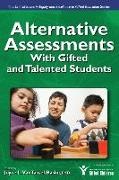Read more
List of contents
List of Tables List of Figures Acknowledgements 1. An Overview of Alternative Assessment Measures for Gifted Learners and the Issues That Surround Their Use 2. Nontraditional Strategies for Identifying Nontraditional Gifted and Talented Students 3. Nonverbal Test Scores as One Component of an Identification System: Integrating Ability, Achievement, and Teacher Ratings 4. Traditional IQ: 100 Years of Misconception and Its Relationship to Minority Representation in Gifted Programs 5. Using Off-Level Testing and Assessment for Gifted and Talented Students 6. Intelligence Testing and Cultural Diversity: The Need for Alternative Instruments, Policies, and Procedures 7. Identifying Low-Income and Minority Students for Gifted Programs: Academic and Affective Impact of Performance-Based Assessment 8. The Rainbow Project: Using a Psychological Theory of Giftedness to Improve the Identification of Gifted Children 9. The Value of Traditional Assessments as Approaches to Identifying Academically Gifted Students 10. Nontraditional Applications of Traditional Testing 11. The Role of Creativity Tools and Measures 203 in Assessing Potential and Growth 12. Portfolio Assessment of Gifted Students 13. Product Assessment 14. Using Performance-Based Assessment to Document Authentic Learning 15. Epilogue: What Do We Know About Identifying and Assessing the Learning of Gifted Students? Appendix: Alternative Assessment Tools for Gifted Learners About the Editor About the Authors
About the author
Joyce VanTassel-Baska, Ed.D., is the Jody and Layton Smith Professor Emerita of Education and former Executive Director of the Center for Gifted Education at William & Mary in Virginia, where she developed a graduate program and a research and development center in gifted education. She also initiated and directed the Center for Talent Development at Northwestern University.

